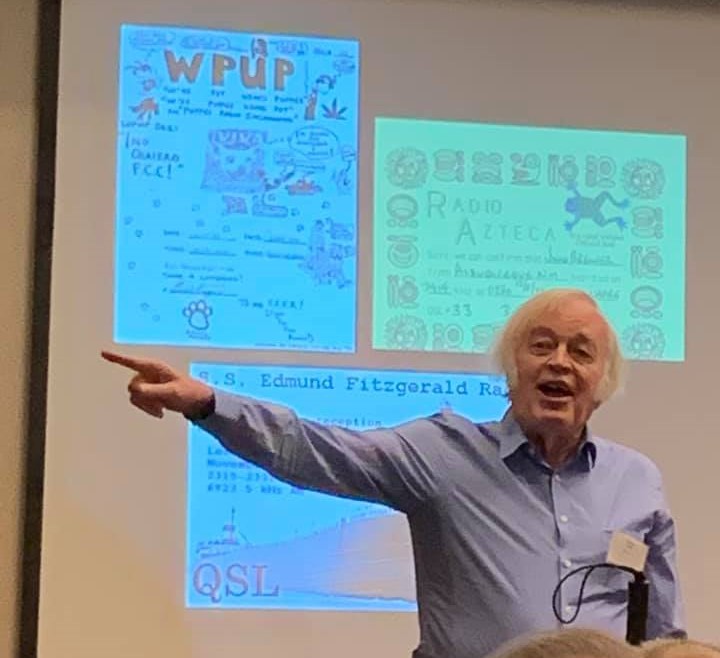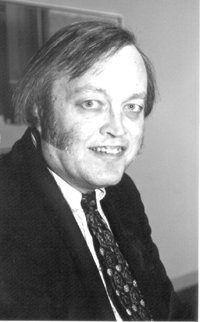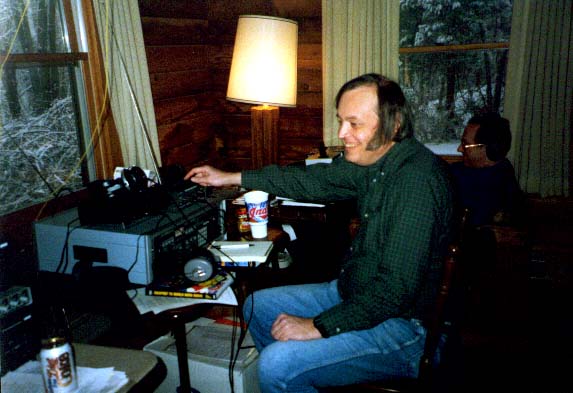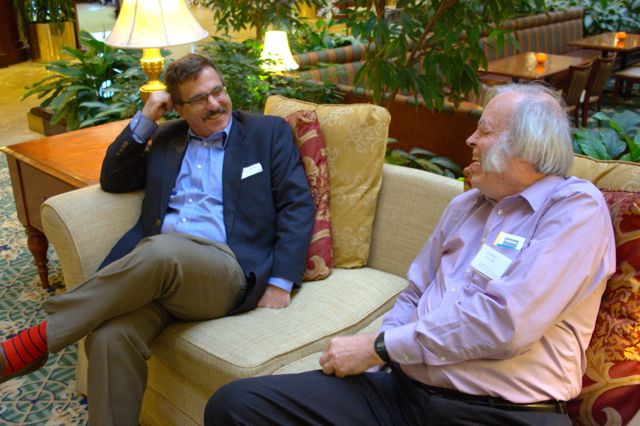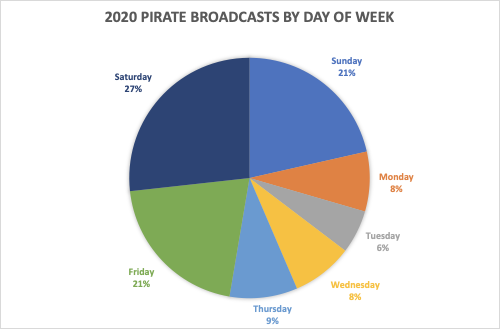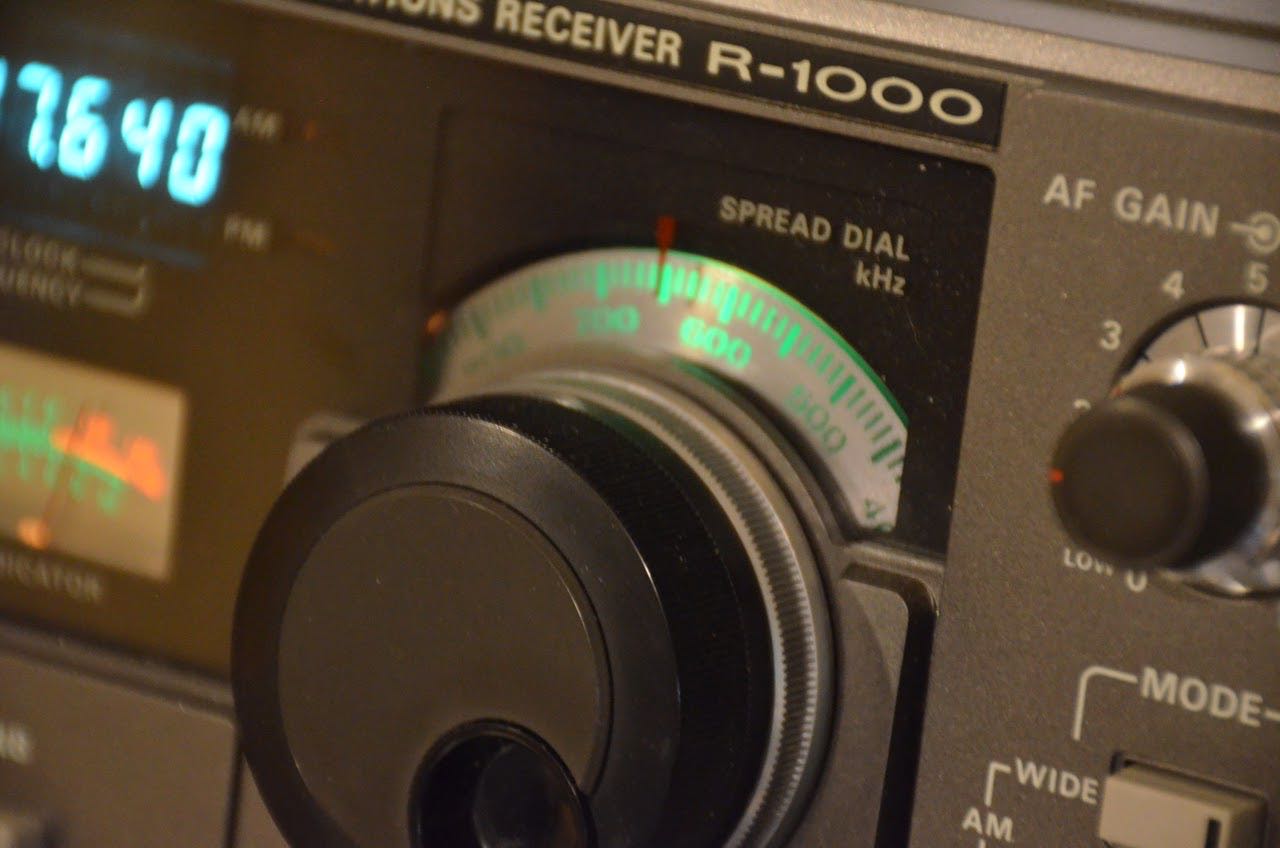Radio Waves: Stories Making Waves in the World of Radio
Because I keep my ear to the waves, as well as receive many tips from others who do the same, I find myself privy to radio-related stories that might interest SWLing Post readers. To that end: Welcome to the SWLing Post’s Radio Waves, a collection of links to interesting stories making waves in the world of radio. Enjoy!
Many thanks to SWLing Post contributors Marty, Richard Cuff, David Iurescia, and Doug Katz for the following tips:
RCI English section: goodbye (Radio Canada International)
Canada’s international broadcast service from the English language team of Radio Canada International has come to an end.
RCI, (originally the International Service, CBC-IS) was initially created towards the end of the Second World War. The purpose was to broadcast news and information from home via shortwave to Canadian military personnel fighting in Europe. It also began providing reliable news and information to recently liberated countries and to Germans still in the war.
That reliable news and information was considered of great value during the subsequent Cold War years, as several more languages were added to the service such as Russian, Ukrainian, Czech, Hungarian and Polish. Other languages sections included as Brazilian Portuguese and Japanese. With 14 language sections in 1990, and some 200 staff, the full English and French newsroom provided news of interest and importance for each language section specifically targeted to each of the various broadcast regions around the world.
Following a major budget cut of some 80 per cent in 2012, the shortwave and satellite service was terminated along with the majority of staff including the newsroom and some language sections. In recent years, only Chinese (Mandarin), Arabic, and Spanish remained along with English and French. RCI was transformed into a much smaller internet-based operation consisting of three people per language section.
In December 2020, the domestic public broadcaster CBC / Radio-Canada announced that the English and French sections of RCI would close for good in May. In their place curated stories from the domestic English and French public broadcaster will be provided.
A manager will now oversee the staff of eight who will adapt curated stories from the CBC and Radio-Canada into Mandarin, Arabic, and Spanish, along with Punjabi and Tagalog.
An effort was and is being made by the RCI Action Committee to preserve and even expand the service which has garnered great support from a former prime minister, former diplomats and many academics, but the end date has come. This is the last entry by the RCI English section.
From the English Section consisting of Lynn, Marc, and Levon, faithful and long-time popular replacement Terry Haig, and recently also Vincenzo Morello, and the many others over the all those years, we thank you for having shared our stories over these many years.[…]
The Pirate Radio Capital: A sound tour with David Goren, radio producer and audio archivist (CRJ.org)
In 2018, David Goren, a radio producer and audio archivist, created the Brooklyn Pirate Radio Sound Map to collect the sounds of dozens of pirated broadcasts from across the borough. Pirate stations earn their name by hitching a ride on already licensed radio frequencies that typically cost commercial stations millions of dollars to acquire and set up. Nowhere in the country are there more pirate radio stations than in New York, where they provide a vital service to immigrant populations.
Goren estimates that New York has about a hundred pirate stations, transmitting from rooftops and attics to listeners seeking news from around the city and back home, as well as
entertainment and religious programming. The broadcasts bypass socioeconomic barriers and provide a means to seize control of the flow of information. But they are now at risk of extinction: Before Donald Trump left the White House, he signed the Pirate Act, which increased the authority of the Federal Communications Commission to fight pirate operations through mandatory sweeps in cities with high concentrations of pirate radio use. Pirate stations today face fines of up to two million dollars. “The people running these stations, they don’t have two million dollars,” Goren said. Broadcasters that don’t make it onto his sound map could be lost forever.
Click here to read the full story and listen to the audio tour with David Goren.
Shortwave effects pedal (Recovery Effects)
Inspired by espionage devices used during World War II and the Cold War, Shortwave transforms audio into clandestine operations of the past; Russian number stations, mysterious sounds transmitted by radio, and eerie sounds stored on early portable recorders.
Choose between 2 types of noise and interference, and control it with the Exposure parameter. Velocity and Focus control the amount of pitch stabilization. Shortwave will add an interesting emotional response and atmosphere to dry, simple sounds, or destroy a signal like no other fuzz pedal can.
Hand-made in Seattle, WA. Shortwave operates on a standard “Boss” style 9vdc power supply (not included), but can also run at 18vdc for additional headroom. True bypass switching. Included a limited-lifetime warranty.
Enclosure size: 4.77″ x 2.6″ x 1.39″
In the emptiness of space, Voyager 1 detects plasma ‘hum’ (Cornell.edu)
Voyager 1 – one of two sibling NASA spacecraft launched 44 years ago and now the most distant human-made object in space – still works and zooms toward infinity.
As the craft toils, it has long since zipped past the edge of the solar system through the heliopause – the solar system’s border with interstellar space – into the interstellar medium. Now, its instruments have detected the constant drone of interstellar gas (plasma waves), according to Cornell-led research published May 10 in Nature Astronomy.
Examining data slowly sent back from more than 14 billion miles away, Stella Koch Ocker, a Cornell doctoral student in astronomy, has uncovered the emission. “It’s very faint and monotone, because it is in a narrow frequency bandwidth,” Ocker said. “We’re detecting the faint, persistent hum of interstellar gas.”
This work allows scientists to understand how the interstellar medium interacts with the solar wind, Ocker said, and how the protective bubble of the solar system’s heliosphere is shaped and modified by the interstellar environment.
Launched in September 1977, the Voyager 1 spacecraft flew by Jupiter in 1979 and then Saturn in late 1980. Travelling at about 38,000 mph, Voyager 1 crossed the heliopause in August 2012.
After entering interstellar space, the spacecraft’s Plasma Wave System detected perturbations in the gas. But, in between those eruptions – caused by our own roiling sun – researchers have uncovered a steady, persistent signature produced by the tenuous near-vacuum of space.
“The interstellar medium is like a quiet or gentle rain,” said senior author James Cordes, the George Feldstein Professor of Astronomy (A&S). “In the case of a solar outburst, it’s like detecting a lightning burst in a thunderstorm and then it’s back to a gentle rain.”
Ocker believes there is more low-level activity in the interstellar gas than scientists had previously thought, which allows researchers to track the spatial distribution of plasma – that is, when it’s not being perturbed by solar flares.[…]
Do you enjoy the SWLing Post?
Please consider supporting us via Patreon or our Coffee Fund!
Your support makes articles like this one possible. Thank you!




